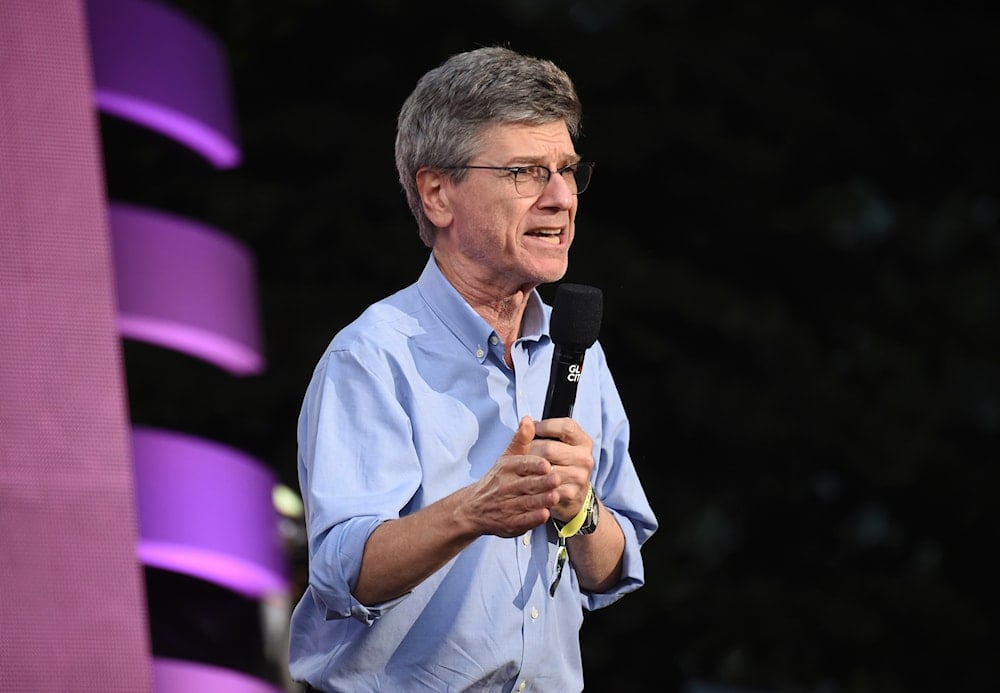NATO became tool of US expansion, says US economist
US economist Jeffrey Sachs says NATO should have ended in 1990, arguing its eastward expansion violated Western promises and became a vehicle for US power projection.
-

Economist Jeffrey Sachs speaks at the 2018 Global Citizen Festival in Central Park on September 29, 2018, in New York. (Photo by Evan Agostini/Invision/AP)
Renowned US economist Jeffrey Sachs has stated that NATO should have been dissolved in 1990, following the collapse of the Soviet Union and the dissolution of the Warsaw Pact. In an interview with RIA Novosti ahead of the upcoming Eastern Economic Forum in Vladivostok, Sachs argued that the alliance had fulfilled its original purpose and should not have continued expanding.
"First of all, NATO should have ended in 1990 when President Gorbachev ended the Warsaw Pact. The Western countries should have said yes, and we end NATO," said Sachs, who currently serves as the director of the Center for Sustainable Development at Columbia University.
Sachs criticized NATO’s eastward expansion over the past three decades, calling it "wholly unjustified and contrary to Western promises, adding, "It became, instead, a mechanism of US power expansion, which is not what NATO should be."
Sachs' comments reflect growing criticism of the bloc’s post-Cold War trajectory, especially regarding its role in escalating tensions with Russia.
Europe lacks Cohesion for an independent security framework
The economist also expressed doubt about the prospect of Europe establishing an alternative, independent security architecture in place of NATO.
"The problem with Europe is, as everybody knows, there isn’t really a Europe. There are so many countries squabbling with each other," he noted, emphasizing the continent's history of internal conflict over the past millennium.
Russian President Vladimir Putin previously stated in a February 2024 interview with US journalist Tucker Carlson that Russia had considered joining NATO in the early 2000s.
According to declassified US government documents, Clinton told Putin during a 2000 meeting that NATO's eastward expansion was not a threat to Moscow and that he was open to considering Russia itself joining the alliance.
"From the outset of the NATO enlargement process, I knew that it could be a problem for Russia. I was sensitive to this, and I want it understood that NATO enlargement does not threaten Russia in any way," Clinton said. He noted that if both presidents' successors focused on each other as enemies, they would miss out on opportunities to cooperate.
However, in the interview with Carlson, Putin pointed out that Russia's request to join NATO was met with a "cold" response from Clinton.
In recent years, Moscow has repeatedly pointed to NATO’s intensified military activity near Russia’s western borders as a security threat. One of the key factors cited by Russia for launching its special military operation in Ukraine in February 2022 was Kiev’s stated intention to join the alliance.
Sachs is scheduled to speak at the Eastern Economic Forum, which will take place in Vladivostok from September 3–6, during a session titled "UN Development Agenda Beyond 2030."

 3 Min Read
3 Min Read










